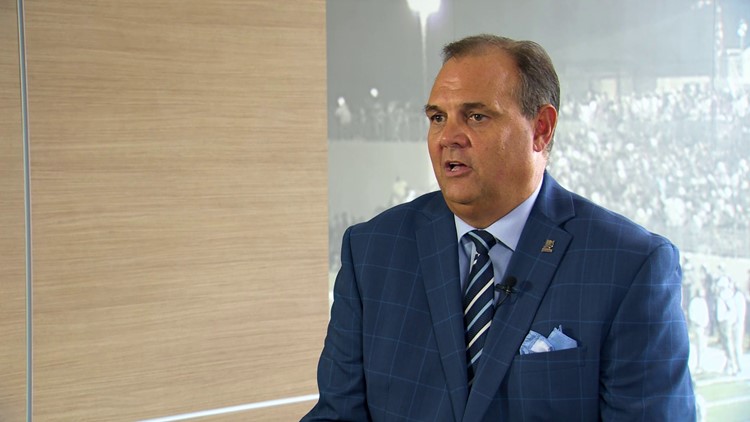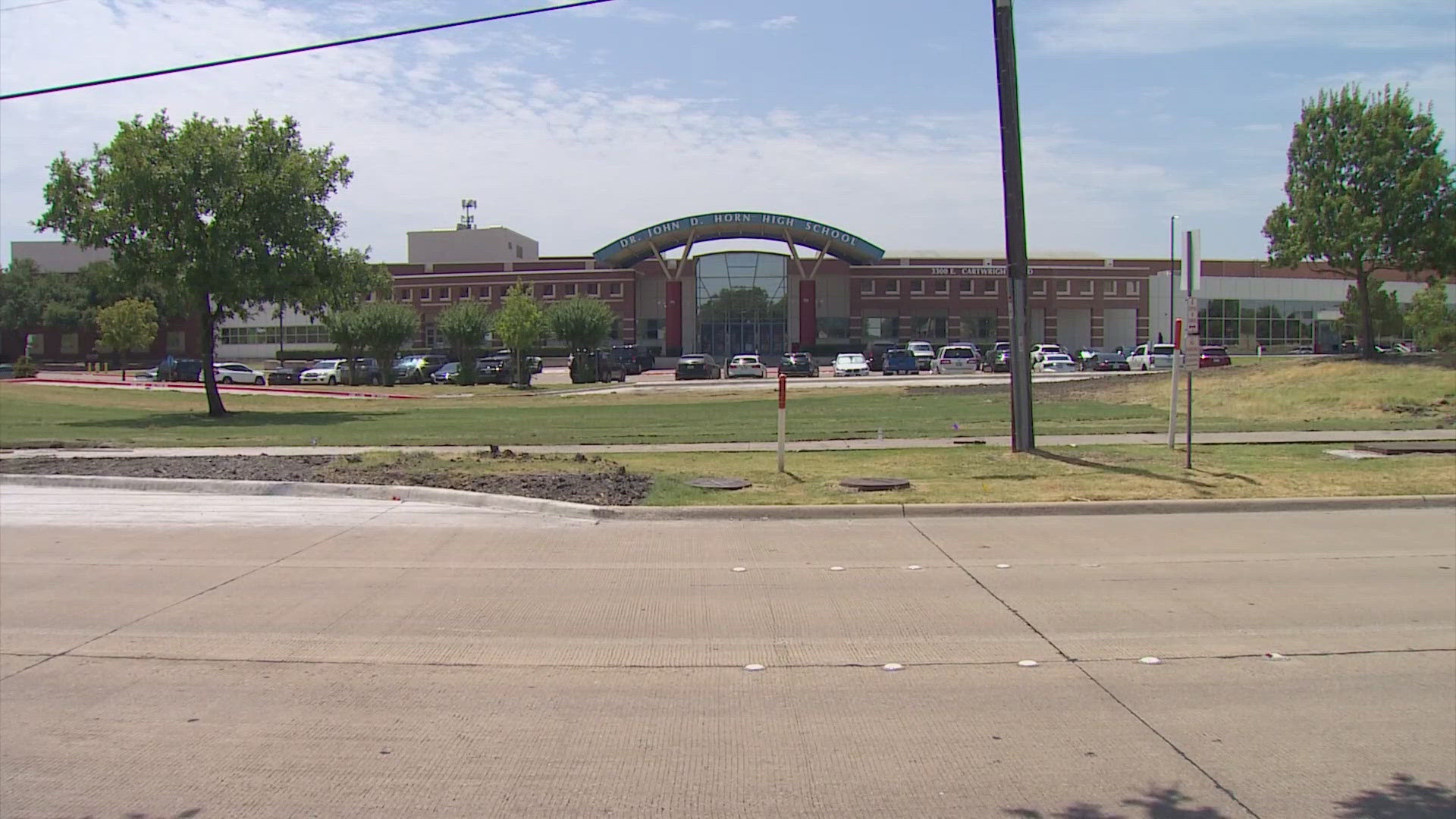DENTON, Texas — When Denton ISD Superintendent Jamie Wilson looks out at the 12,000 seats of Collins Stadium, he sees the modern equivalent of a town square.
“The fabric of our communities in the state of Texas rallies around their public school system,” he said. “And we want people in Denton ISD to grow up as Broncos and Raiders and Wildcats and Bengals …and feel a part of that. Play for the name on the front, rather than the name on the back.”
But will those ties still hold, if young athletes are allowed to profit from their name, image and likeness?
24 states allow high school athletes to profit from NIL deals. But not Texas. Senate Bill 1385 states they must wait until enrolling in higher education.
This year, a Republican from Tarrant County, Rep. Giovanni Capriglione, introduced HB 1802. It would’ve allowed 18-year old high school athletes to strike NIL deals, but it stalled in the Legislature.
“I don’t know where that will end up,” Wilson said. “This is a learning experience. I don’t think high school athletics …should be done for the purpose of you earning money.”
But Wilson admits there’s a thin line between students who profit from their athletic prowess, and those who do extra work for their schools.
“We have a career center here, where our students produce our events and games. And they do the video for the video boards, and they run the cameras. We pay them to do that, right? It’s outside the school day.”
Denton ISD is one of the fastest growing districts in North Texas. It encompasses more than 40 schools in 18 cities, with plans to open four new campuses next year. But the superintendent says, that growth is being hampered by a lack of funding and inflation.
“So if you think about fuel, electricity, supplies, materials. I mean, those things have gone up 18% of more the last five years.” But the Texas Legislature hasn’t changed its per pupil spending since 2019, a year before the pandemic started. “In order to meet the inflationary needs, we need about $1,000 more per kid,” Wilson said.
When it comes to academics, Wilson says “We still have a little ways to go in math.”
And the latest scores from the redesigned STAAR test show Denton ISD hasn’t fully recovered from the pandemic. In 2019, 76% of students in grades 3-8 met or mastered the material. Last spring, that percentage was 54%. The percentage of students who “did not meet” grade level proficiency was 18% in 2019. Last spring, it was 31%.
“The hardest part for our teachers, with a classroom of 25+ kids, is when they all have a delta in a different skill. When they’re all at different levels in math or need something different, it requires us to regroup," Wilson said.
But Wilson said he sees signs of hope in the latest STAAR results, which show the district on the upswing again. This past spring, 5% more students reached the “meets expectations” level compared to 2022. And the number of students who “did not meet” fell 4 percentage points from the year before.
In his 11 years as superintendent, Wilson has increasingly become embroiled in the battle over books.
“We think parents have the right and responsibility to tell us what they want their kids to read, or not. Especially when it’s a self-selection, when they’re going to the library and doing things on their own.”
That was basically the policy Denton ISD adopted last year, pulling some books off the shelves but leaving most at the discretion of parents. We asked him, “How do you balance a parent saying ‘I want to choose what’s appropriate for my child’ vs. ‘I want to decide what’s right for every child’?”
“That’s the hard part, right?" Wilson said. "Not everybody knows every kid’s situation. And so we have defaulted to the parents of the individual child.”
“Our catalogs are all online. Our parents can see them, they can read through them. Parental choice is about having access to those things, if a parent chooses to or not.”
When asked what other districts can learn from Denton ISD, Wilson suggests its approach to recruiting teachers. While other areas struggle to fill slots and retain them, Denton ISD had fewer than 20 openings this year. Wilson says they’re fortunate to have two colleges nearby, with Texas Woman’s College and UNT providing a pipeline.
“In addition to that, 7 years ago, we started our ‘grow your own teacher’ program," Wilson said. "We try to pull people into our schools who are from here.”
Under Teach Denton, current teachers identify students with certain characteristics and interests, even at the lower elementary grades. Those students are provided resources as they mature, from internships to college credit, with the eventual goal of bringing them onboard full time.
“And we had just under 40 teachers this year that were hired in Denton ISD, who were our students in Kindergarten through 12th grade," he said.
Wilson said Denton is an extremely popular area for young families, growing year by year. Instead of looking at that as a problem, the district saw a way to use the area as a selling point.
“You know the research talks about how close people want to work to where they grew up. So that’s what we tap into," he said.
Wilson said the goal is to eventually create a permanent pipeline that will guarantee certain positions are filled.
“As we continue to grow our own and have upwards of 15% of our teachers every year be those who went to our schools, we’re creating that systemic culture,” he said.
A culture that he believes can be attractive, no matter how big the area grows.



